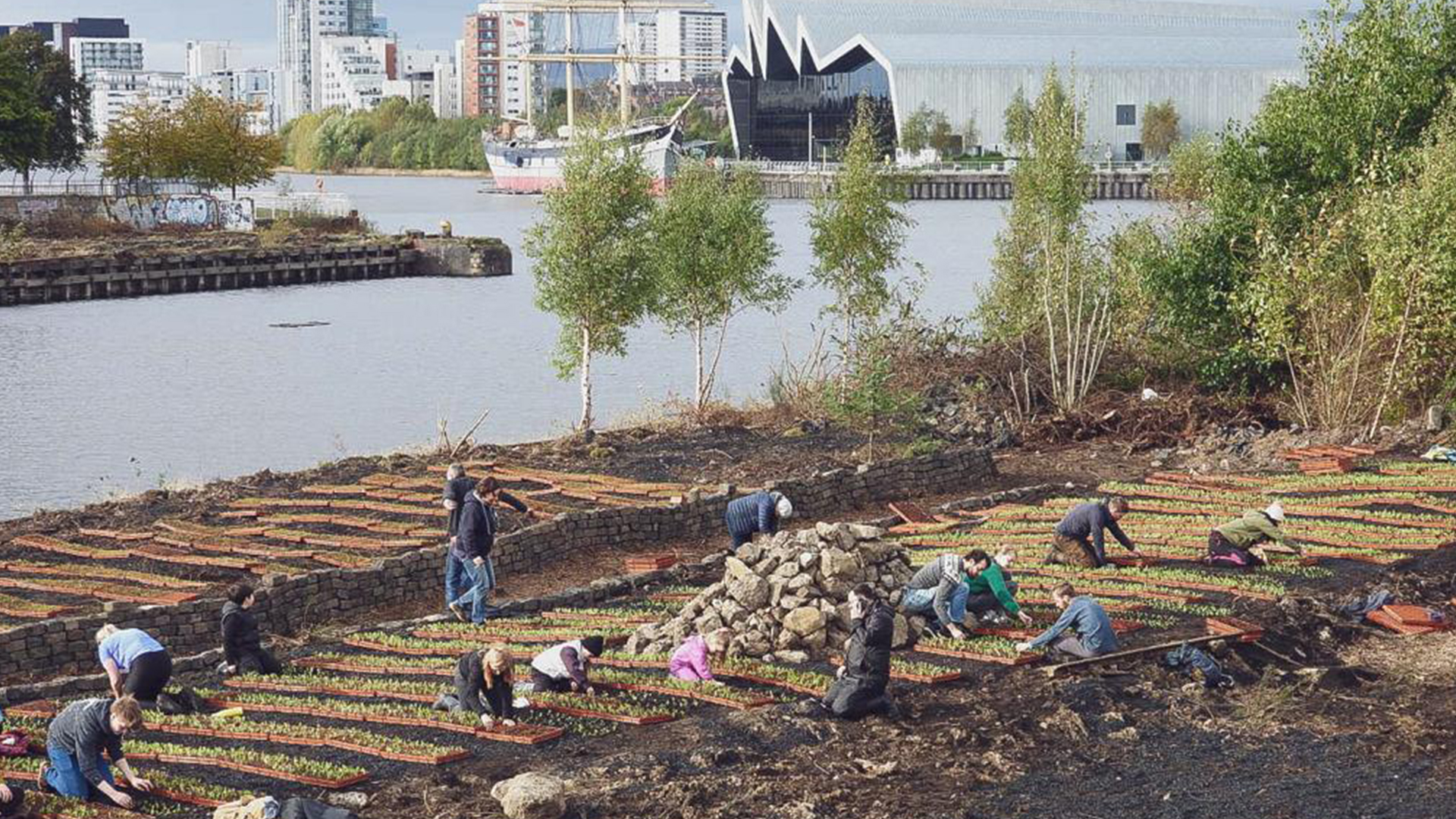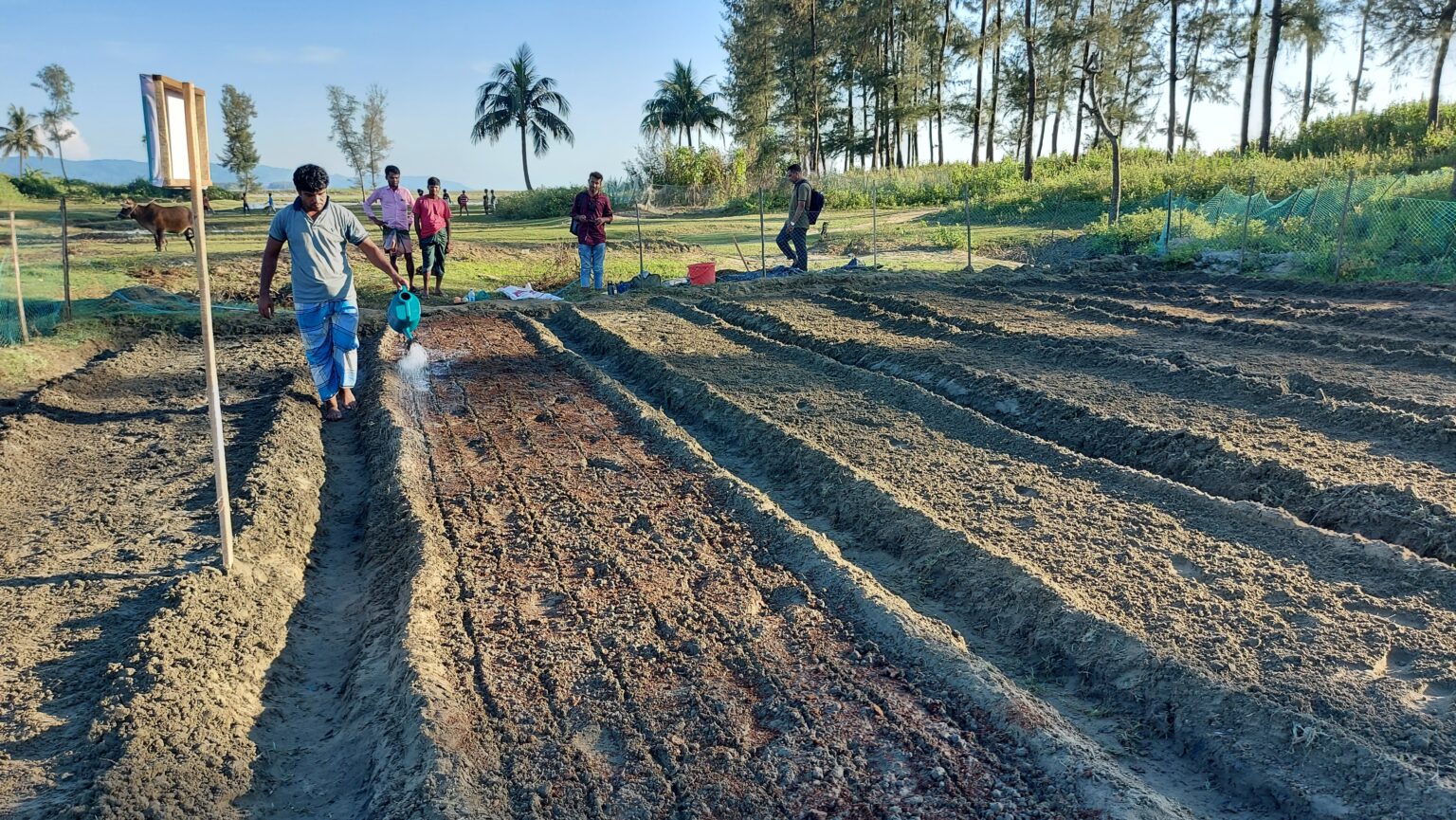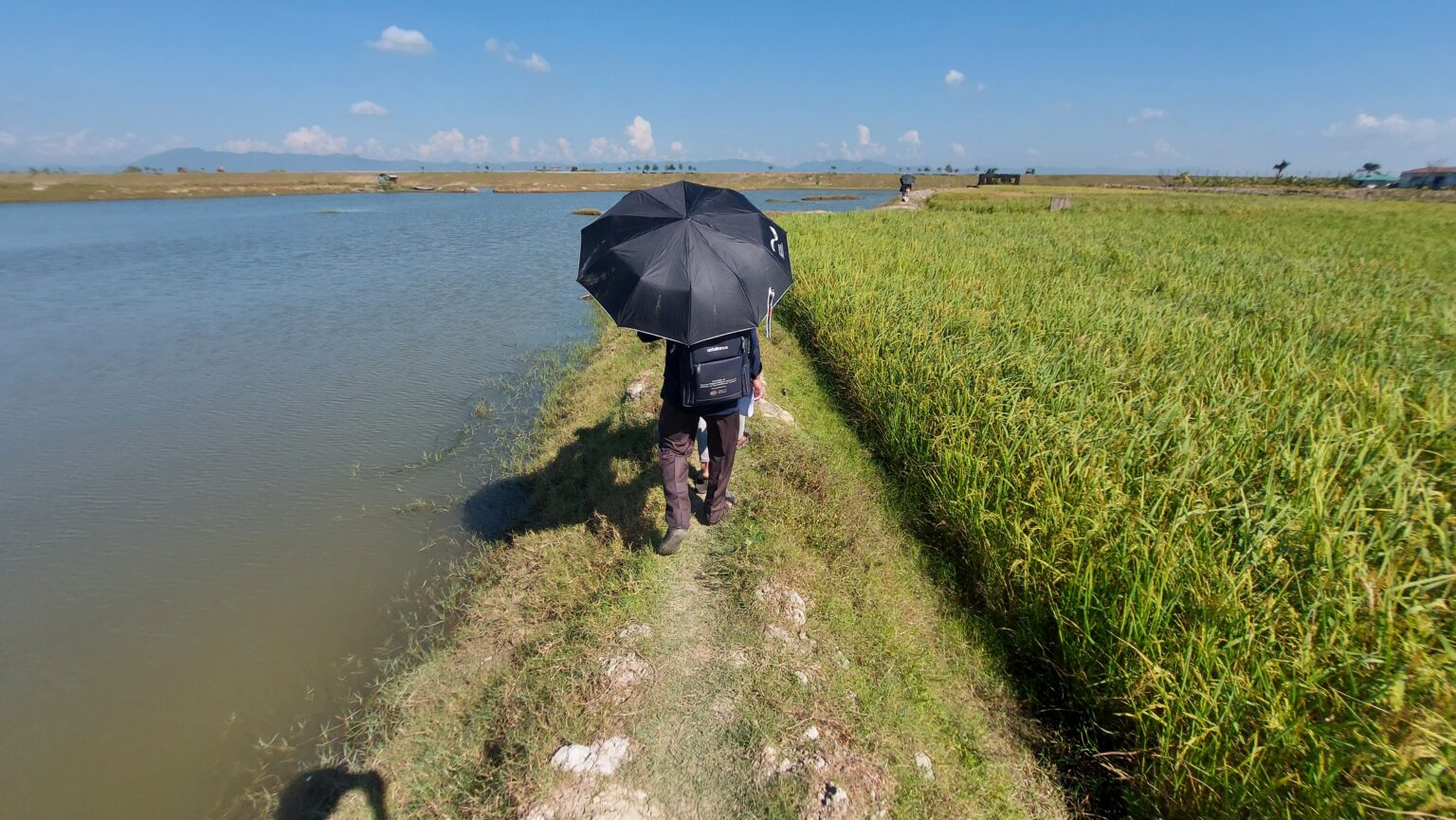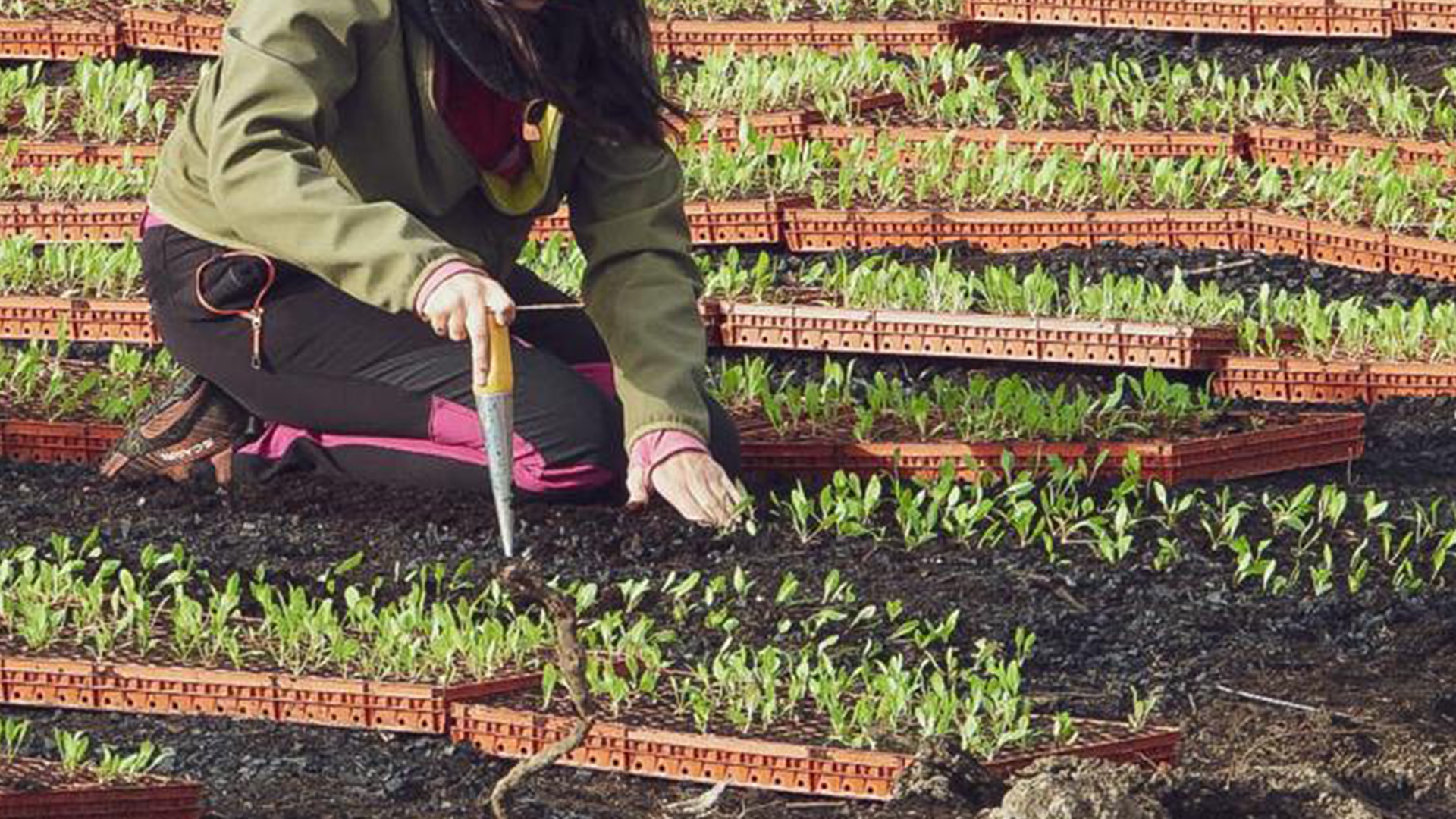
- Sustainable Planet -
- 6mins -
- 285 views
Seawater Farming: one salty solution to the impact agriculture has on climate change
Scotland-based non-profit Seawater Solutions helps communities turn underutilised land into wetland ecosystems for food production and climate resilience.
Sarcocornia: the salt-loving solution to seawater farming
Over the last five years, Scotland-based Seawater Solutions have been scouring the planet looking for the best plant species that solve for climate, land, water, and food. This journey has taken them to every continent, exploring ecologies from the floodplains of Bangladesh to the Scottish Highlands. After multi-year research programmes, they are happy to announce the final winner, the perennial Sarcocornia!

Sarcocornia
This exceptional plant does it all. Not only can it grow in extremely high salinity (greater than seawater), it is drought tolerant, flood resistant, stores 30 times more carbon than tropical rainforests and 5 times faster, but it is an incredible source of biomass.
Yielding over 40 tonnes per hectare annually (wheat produces 6 tonnes in comparison), this crop is highly nutritious. It contains Omega 3, more protein than most grains, and has the highest content of linoleic oils of any terrestrial plant.
Over the last two years, Seawater Solutions have been selecting and growing this crop in diverse regions globally.
Best of all, due to its perennial nature, it is able to grow exponentially during winter and summer seasons without an immediate need to harvest. Farmers can therefore choose when to harvest, giving flexibility in climate-affected agricultures.
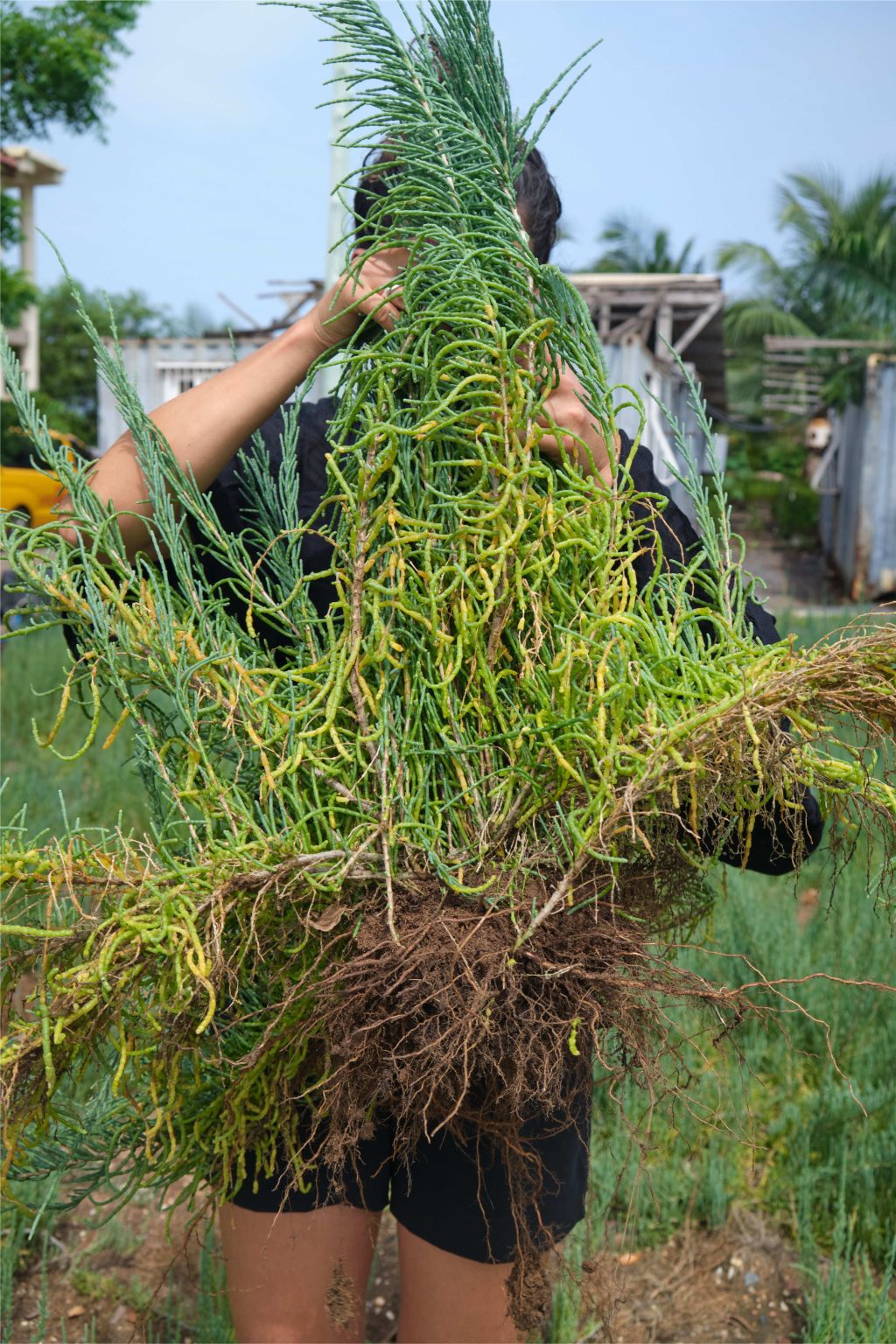
a holistic solution to food insecurity and climate challenges like drought and freshwater scarcity
Since 2021, Seawater Solutions have been using this crop to terraform project sites in the Kalahari Desert, Bangladesh, Spain and West Africa with great results.
With fertile land increasingly scarce, turning saline and degraded land into productive agro-ecologies is gaining traction as a holistic solution to food insecurity and climate challenges like drought and freshwater scarcity.
These agricultures will be used for a wide range of uses, from livestock and aquaculture feed that replace unsustainable soy and fishmeal sources, but also for oils. and even building materials.
If you’re interested in learning more about this incredible set of species and their potential feel free to reach out to SeawaterSolutions
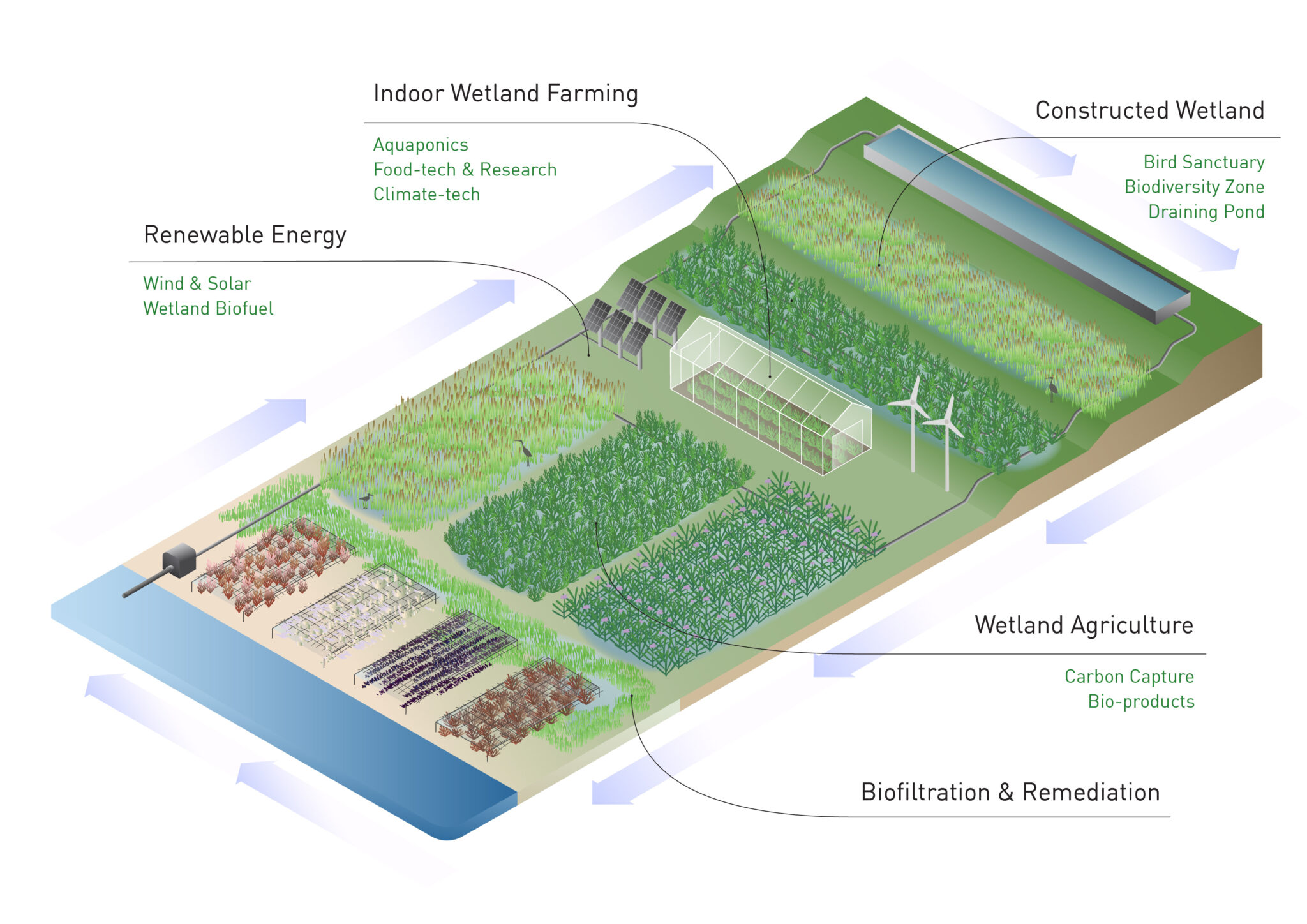
By-products:
Salt-tolerant crops, also known as halophytes, are amazing plants. Not only do they grow in extreme environments to create a highly nutritious superfood, but they also have significant potential for by-product cultivation, including:
- Natural salt substitutes produced from saline plants with high potential in health industries.
- Oils for cosmetics, such as linoleic acid used in skin-care products.
- Biofuels, with high potential for cultivation in concert with operations in Bangladesh.
- Sea-plant animal fodder has immense potential globally with various saline crops proven to improve animal health, and is a sustainable alternative to imported feed.
- Carbon credits for environmental and CSR initiatives.
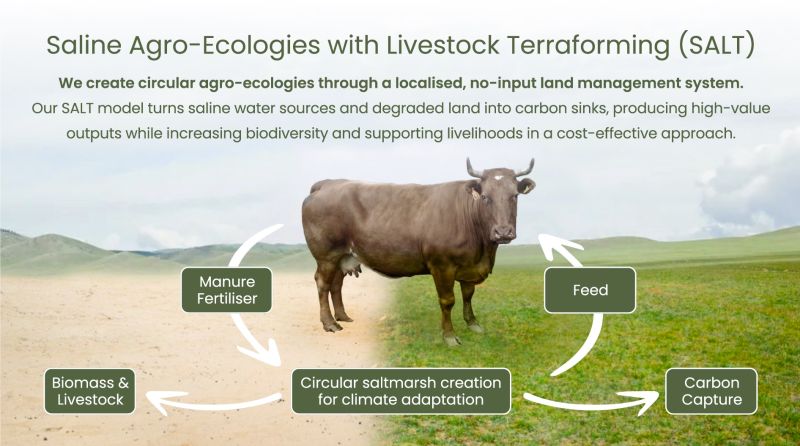
Seawater Farming with Salt-tolerant Crops
Seawater Farming
One of the largest contributors to climate change is the agricultural sector; it is also the sector that is experiencing greater climate disruptions, and that must innovate to support a growing population. The UN Says There is Less Than a Decade to Avoid a Climate Change Catastrophe.
Seawater Solutions champions climate resilience by rethinking farming and equipping farmers with systems that tackle the challenges of climate change. Their aim is to promote sustainable agricultural innovation, environmental promotion and rural development, whilst pursuing the sustainable development goals from the United Nations.
Sea vegetables represent a multi-million GBP market, and one which is expected to grow 8-10% annually.
Seawater Solutions offer their partners
- High-value ‘superfoods’ (such as Samphire) for domestic and international markets
- Increased incomes in a context of diminishing market returns
- Increased yields and soil health
- Support moving towards organic, no-tillage and regenerative farming practices
- Promotion of wildlife through ecosystem restoration/creation
- Defence of their coastlines from rising sea-levels
- Significantly increased carbon capture potential of their land.
Salt-tolerant Crops
Seawater Solutions are the first operation in the UK to grow halophytic plants on farmland. In fact, they are the first in Europe to redevelop farmland to introduce wetland ecosystems, and artificially introduce seawater. Over the next three years they aim to introduce 30+ salt-tolerant vegetable species for various products.
The focus for these saline crops is for consumption towards a rapidly growing sea-vegetable market that is hungry for organic, nutritious, and environmentally-promoting produce.
Samphire has gained a reputation as a “superfood” with astounding nutritional value, including Omega 3, high levels of iron, and the highest linoleic acid content of any crop.
Source: SeawaterSolutions.org
